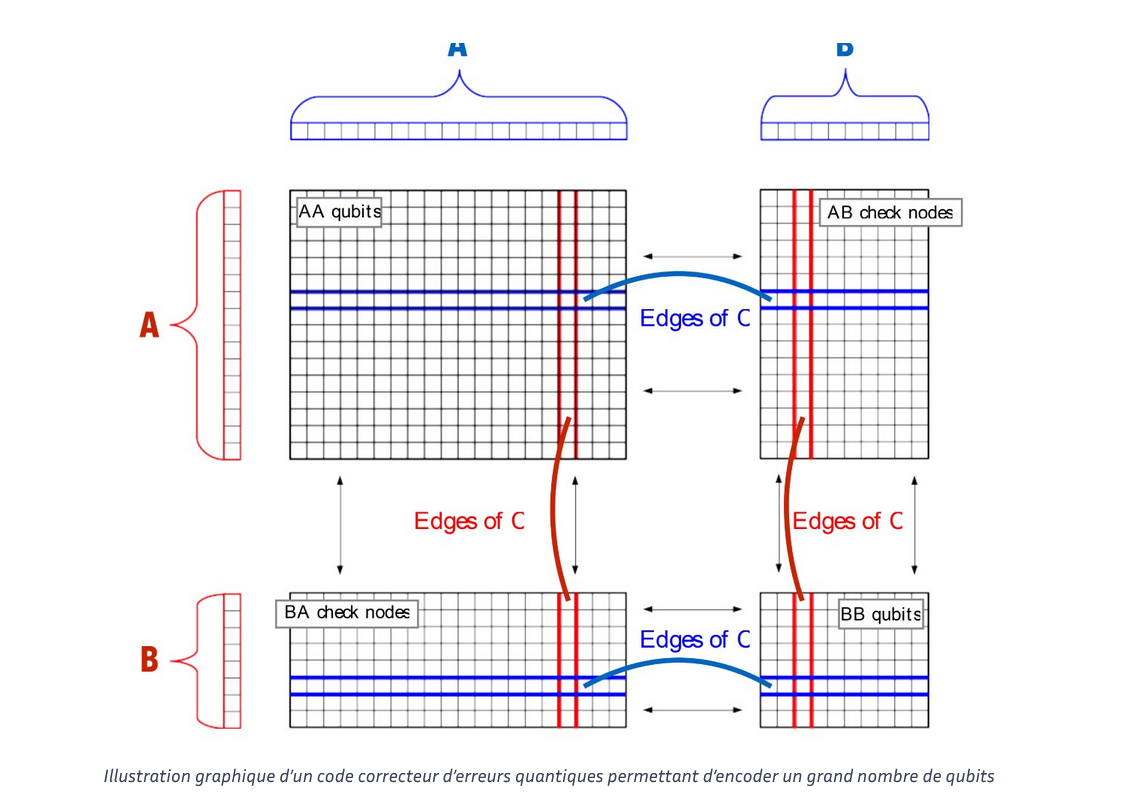
Your Gifneq project(Gibbs Framework for Near-term Quantum Computing) has received funding in the form of an ERC Starting Grant and aims to tackle a major challenge in quantum computing: the problem of "noise". What does it involve?
Quantum computers work on the same principle as modern computers: we give them instructions and they perform calculations. The difference is that instead of operating with bits, which can only be in one state at a time (0 or 1), they operate with qubits, which obey the laws of quantum mechanics and can be in a superposition of multiple states. While this theoretically offers much greater computing capacity, the major drawback is that qubits are unstable and disturbed by a great deal of "noise ", i.e. interference. It's like when you're in a loud place and you're trying to speak to the person next to you: there's a risk that your message will be misunderstood.
In current quantum computer prototypes, one instruction in 1,000, or even 100, fails. There are well-established theories on fault tolerance and error correction that would make it possible to calculate in the presence of noise. To continue the comparison with human communication, one solution would be to repeat the message several times to increase the probability of it being heard. But this type of correction has not yet been perfected experimentally for quantum computers. And even if it were, it would be very costly in terms of resources.
How does your project intend to overcome this obstacle?
Our idea is that since we can't correct all the computer's errors, we need to be able to carry out calculations with a higher error rate. To do this, we're going to use a technique called shuffling, in which particle states are mixed up. Imagine a pack of cards (the state of the particles) and someone (the noise) tries to slip in an ace (a mistake). If the ace is introduced at the start and the cards are shuffled afterwards, this will have no impact on the game. If the ace is added after the cards have been shuffled, but they are then shuffled a little again, the impact will be low. And if it's inserted after shuffling, it will have the highest impact. Our aim is to mix up the states of the particles at the start of the calculation, so that the impact of the error is as diluted as possible... and to find the best way to shuffle according to the expected noise, and therefore the expected errors. This will require us to characterise noise as accurately as possible.
Is that another major area of research?
Exactly. There are many different sources of noise: external influences, inconsistencies, etc. It would be too complicated to model them all, but some are dominant and better structured than others. We are therefore going to develop methods that can eliminate non-dominant sources and model the others. Of course, work in this area and on shuffling requires a host of mathematical tools, which we will be developing in parallel.
How will the ERC help you in these different areas?
With this funding of €1.5 million over five years, I will be able to recruit two or three PhD students and two to four postdocs, who will work on the mathematical tools and theoretical aspects. If the project goes according to plan, we may even be able to experimentally test our tools. Thanks to the ERC, I have the ideal conditions to carry out my research. It's also a sign of recognition of my scientific vision and validation of its potential, which makes me very happy!
What could be the long-term impact of your research?
Quantum computers have enormous potential in many areas. Their theoretical computing power could facilitate the search for new drugs, automated machine learning for AI, logistical calculations, and more... And if we show that it is possible to carry out such calculations while diluting the impact of a high error rate, our research could accelerate the development of these computers. We'll be making a major contribution, but others will be needed as well, such as better hardware.
Find out more
Quriosity: quantum-enhanced information processing, Inria, 1/6/2023.
Pasqal livre un ordinateur quantique à plus de 100 qubits au CEA (in French), L’Usine digitale, 19/6/2024.
Les mystères de la physique quantique (video in French), Scope, Arte, 3/3/2024.
Moteurs quantiques : quand la mesure devient vecteur d’énergie (in French), CNRS Le Journal, 7/3/2024.